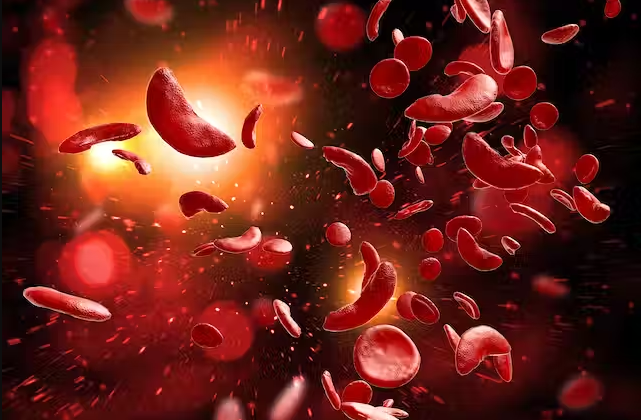
Sickle Cell Disease (SCD) is a genetic blood disorder characterized by abnormal hemoglobin, leading to misshapen red blood cells. It primarily affects individuals of African, Mediterranean, Middle Eastern, and South Asian descent. In children, SCD poses significant health challenges, impacting their well-being and quality of life. However, with the expertise of specialists like Dr. Vikas Dua, a distinguished Sickle Cell Anemia Doctor in Delhi, effective management strategies and comprehensive care can significantly improve outcomes for affected children.
- Understanding Sickle Cell Disease: SCD results from a mutation in the gene responsible for producing hemoglobin. Normal red blood cells are flexible and round, but in SCD, they become rigid and take on a crescent or “sickle” shape. These irregularly shaped cells can block blood flow, leading to pain, organ damage, and anemia. Children with SCD are prone to frequent pain episodes (known as “crises”), infections, stroke, and other complications.
- Symptoms and Challenges in Children: SCD symptoms vary in severity. Children may experience fatigue, jaundice, delayed growth, and recurring episodes of severe pain in the bones, chest, abdomen, or joints. These painful crises often require hospitalization and intensive management. Additionally, children with SCD are at a higher risk of infections due to the compromised immune system.
- Diagnostic Process and Early Intervention: Diagnosis of SCD often occurs through newborn screening tests or genetic testing. Early identification allows for prompt intervention and comprehensive care plans. Dr. Vikas Dua, recognized as a leading Sickle Cell Anemia Doctor in Delhi, stresses the importance of early diagnosis to initiate appropriate treatment strategies and prevent complications.
- Management and Treatment Approaches: Managing SCD in children involves a multidisciplinary approach. This includes medications to alleviate symptoms, prevent complications, and reduce the frequency of pain crises. Hydroxyurea, a medication that boosts fetal hemoglobin levels, has shown efficacy in reducing the frequency of painful episodes in some children with SCD.
- Preventive Measures and Lifestyle Modifications: Certain measures can help reduce the likelihood of pain crises and complications. Adequate hydration, maintaining a nutritious diet, regular exercise, avoiding extreme temperatures, and receiving vaccinations to prevent infections are crucial. Dr. Vikas Dua emphasizes the importance of educating both parents and children about these preventive measures.
- Supportive Care and Psychosocial Support: Coping with Sickle Cell Disease in Children can be emotionally challenging for children and their families. Access to supportive care services, including counseling and psychosocial support, is vital in helping them manage the emotional aspects associated with the disease.
- Advancements in SCD Research and Future Prospects: Ongoing research and clinical trials are focused on finding more effective treatments, including gene therapy and bone marrow transplants, which offer potential cures for SCD. These advancements offer hope for improved outcomes and better quality of life for children with SCD.
- Role of Dr. Vikas Dua in SCD Management: Dr. Vikas Dua, the best Sickle Cell Anemia Doctor in Delhi, specializes in pediatric hematology and has made significant contributions to the field of SCD management. His expertise in providing comprehensive care, guidance on treatment options, and support for families impacted by SCD is invaluable in improving outcomes for affected children.
In conclusion, Sickle Cell Disease in children necessitates comprehensive care, early intervention, and a multidisciplinary approach for effective management. With the guidance of experts like Dr. Vikas Dua, advancements in treatment options, and a focus on holistic care, children affected by SCD can lead fulfilling lives with minimized complications and improved well-being.

